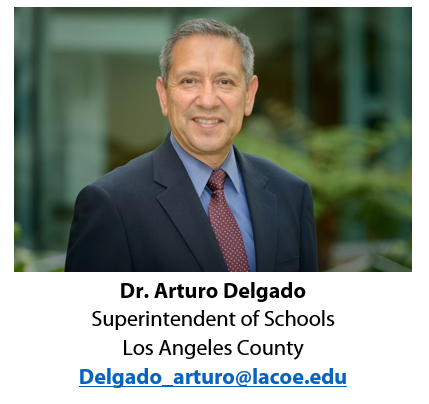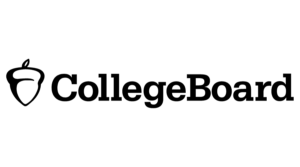ROAD TO SUCCESS ACADEMY
Los Angeles County Office of Education
Arturo Delgado admits that educating students in juvenile court schools can sometimes be “like trying to fit a square peg in a round hole.”
But in Los Angeles County, which administers the nation’s largest juvenile justice system, students are now being treated as learners – not inmates – in a program that makes quality education a priority.
“We believe we’ve found the right formula to motivate and engage our most troubled students and give them the skills to succeed in school, in the workforce and in their communities,” said Delgado, Los Angeles County Superintendent of Schools.
them the skills to succeed in school, in the workforce and in their communities,” said Delgado, Los Angeles County Superintendent of Schools.
The Road to Success Academy (RTSA) was launched by Los Angeles County Office of Education (LACOE) in 2010 as a model approach to motivating and engaging incarcerated youth. The Academy features project-based learning focused on themes that address students’ academic and mental health needs.
RTSA also incorporates daily activities designed to promote character development and self-esteem. The primary strategy of the program is to support students to make learning exciting and relevant to their lives, while holding them to high expectations.
For example, students at the RTSA at Camps Scott-Scudder in Saugus built solar-powered trucks modeled after the Mars rover, with the help of engineers from Caltech. Others studied genocide in east Africa or modeled the photosynthesis of the vegetables in their garden.
Strong leadership has played a major role in the success of RTSA. Superintendent Delgado made improving educational programs and opportunities in juvenile court schools a top priority after joining LACOE in 2011. He has visited other exemplary programs, and believes the best ones are “right here in L.A. County,” with their impressive instruction and “underlying belief system that every single student can learn.”
Prior to RTSA, Delgado said, “there was no differentiation, and teachers were seeing themselves as an extension of probation, versus leaders in education.”
Now, students are at the center of a challenging academic program. The five key elements of the RTSA model are:
- Core academics for high school graduation
- Project-based, thematic learning
- Pathways to higher education
- Instructional and leadership coaching
- Community partnerships to enhance curriculum
The RTSA model uses the Northwest Evaluation Association assessment to measure growth in math and reading. The tests are administered every 60 days, and show that on average students are demonstrating about one year of growth in English language-arts and a half-year of growth in math during each test period.
One of just a handful of efforts across the nation to address the inadequacies of education programs for youth in detention centers, RTSA won the Golden Bell Award from the California School Boards Association in 2013. Delgado also received the Executive Leadership Award from CCSESA in 2013.
RTSA’s defining feature is its Thematic, Interdisciplinary and Project-Based curriculum, or TIP. Students study subjects through related social-emotional themes across all disciplines. The themes relate to each other and build on previous themes.
RTSA instructors use differentiated instructional strategies in the classroom, in addition to research-based intervention programs designed to deliver grade-level curriculum in a meaningful way. Co-curricular programs such as Read 180, Math 180 and Credit Recovery help identify and address learning gaps and credit deficiencies.
LACOE has developed a rigorous, three-year process to officially certify a school site as a Road to Success Academy. There is currently one fully certified school, at Camps Scott-Scudder in Saugus. All of the county’s other juvenile court schools are in various stages of implementation now and should be fully certified between the end of this year and 2017. A competitive grant program assists schools in seeking certification, ensuring buy-in from school staff.
At least 1,800 incarcerated and at-risk youth depend on LACOE’s juvenile court school programs at 13 different sites.
For More Information:
• Juvenile court schools provide compulsory public education services for juveniles who are incarcerated in facilities run by county probation departments. For more information, click here
• For a brochure about RTSA’s background, goals, evidence of success and curriculum
• For more details of the Road to Success Academy
• Read about RTSA and other models across the nation for juvenile justice programs, from the Juvenile Justice Information Exchange




